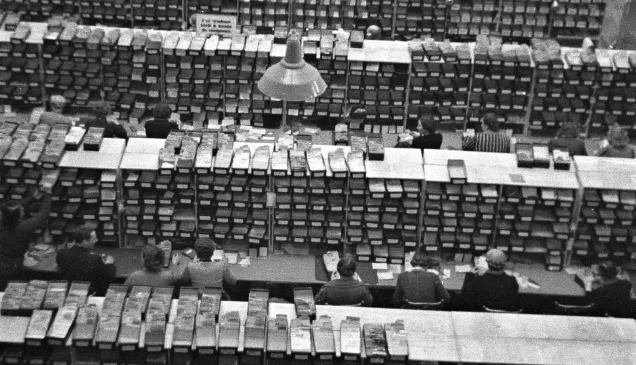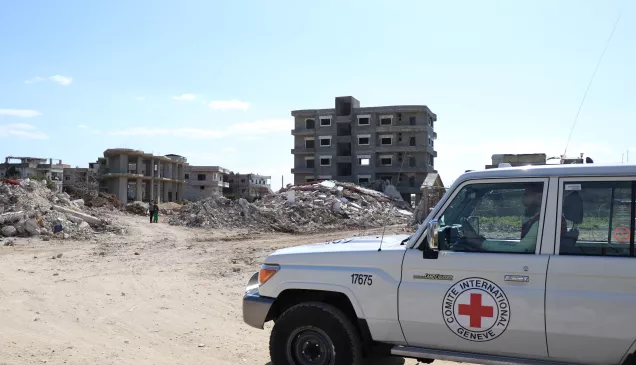Morocco: Mother sees children again after three years of anguish
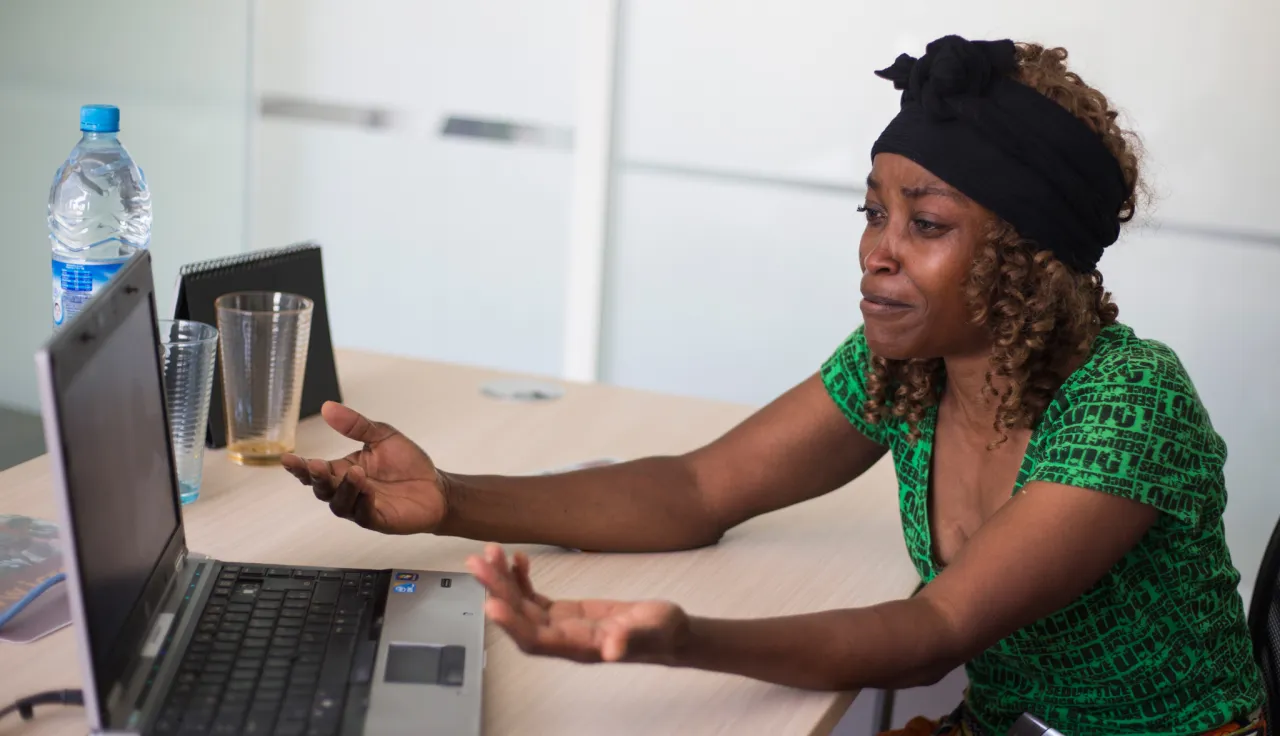
When her children's faces popped up on the computer screen, Denise was overwhelmed. For three years, she had had no news of Christella or her younger brother, Hervé. Then earlier this year, she got to speak to them by phone and now she was finally seeing them via video link. It was almost too much to bear. "I'd searched for them everywhere. I didn't know if they were alive or dead," she said. "They've grown so much. Christella seems taller than me now."
The family were separated in 2012 when a munitions depot exploded in Brazzaville in the Democratic Republic of the Congo. Nearly 300 people lost their lives and more than a thousand were injured. In the chaos after the explosion, Denise and her five-year-old twins got separated from her two other children. Denise looked desperately for them, but to no avail. After some time, a neighbour persuaded her to join migrants travelling to Morocco. But she didn't give up hope and continued to search for her missing children from there.
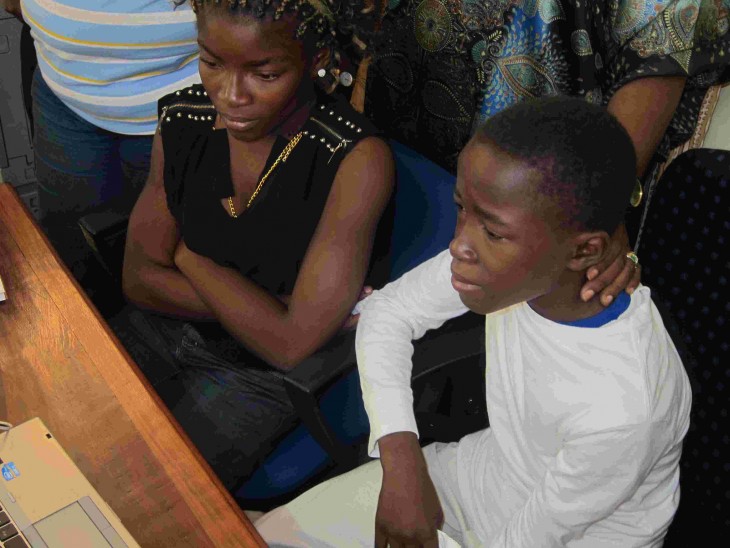
Kinshasa, Democratic Republic of the Congo. Denise's two eldest, Christella (14) and Hervé (11), speak to their mother and younger siblings for the first time in three years at the ICRC's delegation. CC BY-NC-ND / ICRC / M. Renaud
Christella and Hervé had run and run when the depot exploded. When they stopped running and realized they couldn't find their mother, they sat by the side of the road and wept. "I found the two of them on my way to William Boot University in Kinshasa," said Thierry. "They came over to me, crying that they didn't know where their mother was." Thierry tried to help the children find her. He even tried a radio appeal on Congolese national radio, but it proved fruitless. He decided he would take care of the children himself. It was quite a surprise, therefore, when three years on, he got a call from a stranger in Morocco asking if he had taken in the two children.
A global network
So, Denise and her children, who were now in their early teens, got to speak to one another on the telephone. The Moroccan Red Crescent and the ICRC then organized a chat by video link in Rabat and Kinshasa on 7 August while they waited to be reunited. Denise and her twins finally saw Christella and Hervé again.
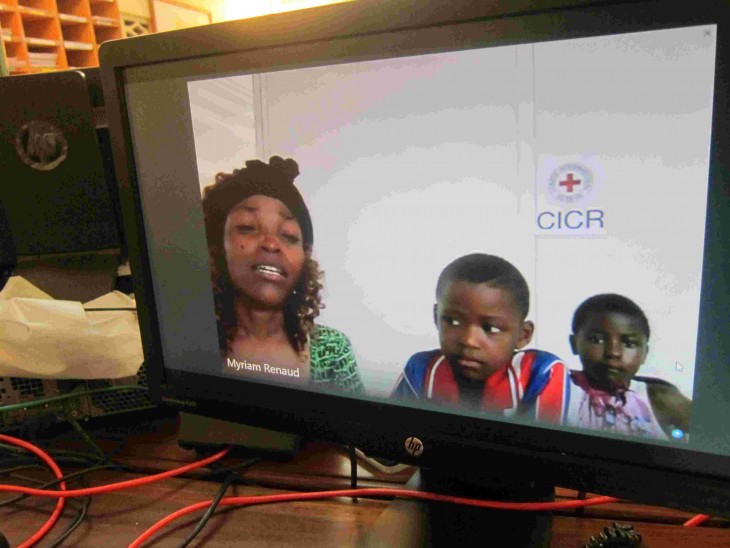
Kinshasa, Democratic Republic of the Congo. Denise and her two youngest, as seen on Christella and Hervé's screen. CC BY-NC-ND / ICRC / M. Renaud
Denise's story is similar to that of many migrants who have lost touch with loved ones, often in tragic circumstances. The International Red Cross and Red Crescent Movement helps people, like Denise, who have been separated from family members by armed conflict, migration or natural disaster. As Myriam Renaud, an ICRC delegate in Morocco, explains: "The strength of the Restoring Family Links network lies in its global presence. As well as the ICRC, there are National Red Cross and Red Crescent Societies in even the most remote parts of the planet. That means we can help these families get in touch with their loved ones, and often reunite them."
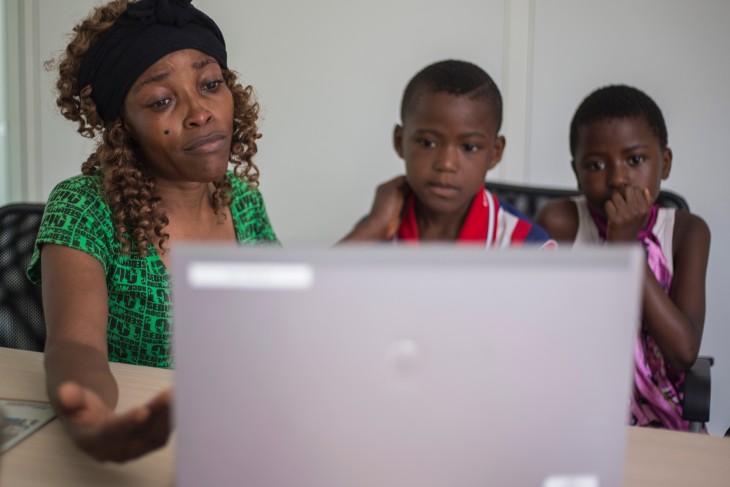
Rabat, Morocco. Denise finally gets to speak to all of her children again. CC BY-NC-ND / ICRC / M. Renaud
With the help of the ICRC, the Moroccan Red Crescent has developed a nationwide network of volunteers to restore family links. There is a national liaison officer, and volunteers receive training to assess people's needs. "We provide an extremely important service. There are hundreds of people hoping for news from their loved ones. By putting families back in touch, the Movement brings comfort to a lot of families every year," said Yahya Ansar from the Moroccan Red Crescent.

